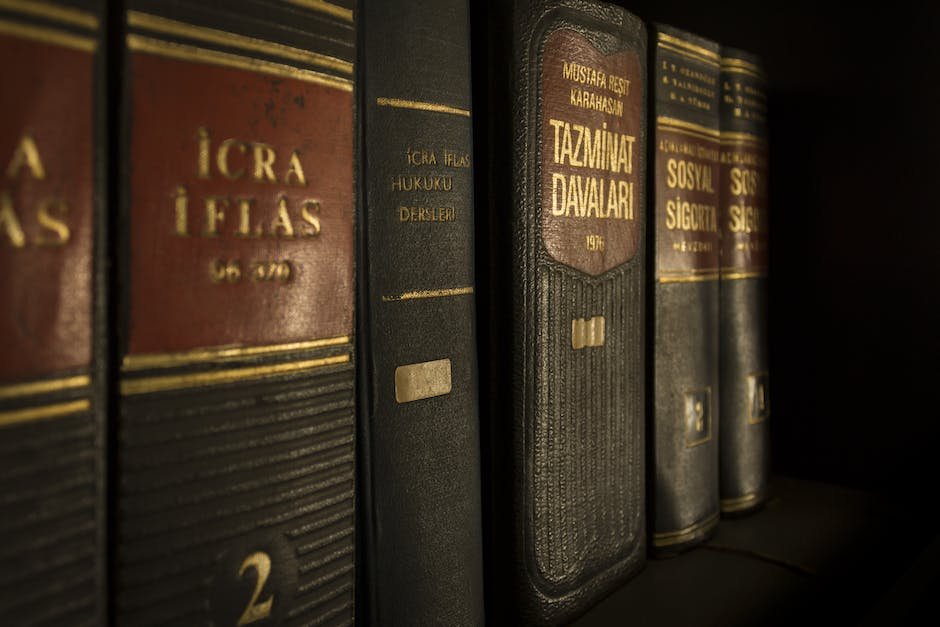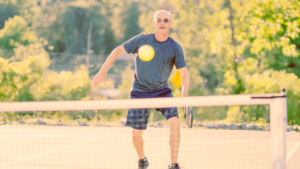The rhythmic sound of wooden paddles striking a plastic ball fills the air, as both young and old gather on a brightly painted court. It’s a scene that has become increasingly common in towns and cities across the United States, as pickleball gains popularity at an astonishing pace. But behind the seemingly innocent game lies a web of legal battles that have spilled out of the pickleball court and into the actual courtroom. From neighborhood disputes to trademark wars, this seemingly harmless pastime has unexpectedly transformed into a game of legal strategy, leaving many questioning how a simple game could become entangled in such complex legal battles.
Table of Contents
- The Evolution of Pickleball: From Recreation to Legal Tangles
- Navigating the Grey Areas: Legal Challenges Surrounding Pickleball Regulations
- Analyzing Recent Court Cases: Precedents and Rulings Impacting Pickleball
- Striking a Balance: Recommendations for Resolving Pickleball Legal Disputes
- Future Outlook: Anticipating Legal Trends in the Pickleball Community
- Q&A
- The Way Forward

The Evolution of Pickleball: From Recreation to Legal Tangles
Over the years, pickleball has grown from a casual backyard game to a full-fledged sport with its own set of rules and professional tournaments. This fast-paced paddle sport combines elements of tennis, badminton, and table tennis, attracting players of all ages and skill levels. However, as the popularity of pickleball continues to soar, legal disputes and controversies have emerged, highlighting the need for clear regulations and guidelines.
- The Battle of the Courts: One of the major legal tangles surrounding pickleball revolves around court disputes. As the demand for dedicated pickleball courts increases, conflicts arise between municipalities, recreational facilities, and even private homeowners. Some argue that pickleball takes up court space originally intended for other sports, causing scheduling conflicts and frustration. This has led to lawsuits and heated debates over the allocation of resources and the fair use of facilities.
- Trademark Troubles: With the rise in popularity of pickleball, trademark infringement has become another issue. Manufacturers of pickleball equipment and apparel often face legal challenges from competitors, accusing them of using similar logos, colors, or names. This has forced the industry to develop clearer branding guidelines and licensing agreements to protect their intellectual property.
- Safe Play and Liability: As pickleball attracts an increasingly diverse range of players, safety concerns have emerged. Accidents and injuries on pickleball courts have led to lawsuits, with injured players seeking compensation for medical expenses and damages. This has prompted organizations and facility managers to enforce stricter safety protocols, such as mandatory protective gear and clearer liability waivers, to mitigate legal risks.
While pickleball’s evolution from a casual game to a sport brings excitement and growth, it also brings legal complexities that must be addressed. As the popularity of this unique sport continues to soar, it becomes essential for all stakeholders to work together to ensure the future of pickleball is built on a strong regulatory foundation.

Navigating the Grey Areas: Legal Challenges Surrounding Pickleball Regulations
Pickleball, a fast-growing sport that combines elements of tennis, badminton, and ping pong, has taken the world by storm. With its rise in popularity, however, comes a multitude of legal challenges and grey areas surrounding regulations.
One of the main legal challenges surrounding pickleball regulations is determining where it can be played. As a sport that can be played on both indoor and outdoor courts, the question of zoning laws and permits arises. Some municipalities may categorize pickleball as a noise nuisance, limiting the areas where the sport can be played. However, with proper noise reduction measures, pickleball enthusiasts are fighting for their right to play in all types of settings.
Another legal challenge is the adoption of standard rules and regulations for pickleball tournaments and competitions. As the sport is still relatively new, there is a lack of universal guidelines, resulting in inconsistencies and disputes. This has led governing bodies, such as the USA Pickleball Association, to develop standardized rules and regulations to ensure fair play and consistent competition across different tournaments and venues.
Analyzing Recent Court Cases: Precedents and Rulings Impacting Pickleball
In the fast-growing world of pickleball, court cases have started to make waves, shaping the future of the sport. Let’s delve into a few recent landmark cases that have impacted pickleball enthusiasts.
1. **Pickleball Noise Regulations:** Can the sound of a pickleball hitting the paddle be considered a disturbance? In a recent court ruling, Johnson v. City of Prestonia, the judge determined that reasonable noise regulations must be enforced to maintain peace within residential areas. As pickleball popularity soars, communities have grappled with finding a balance between allowing this lively sport and protecting the tranquility of their neighborhoods.
2. **Court Size Standards:** The case of Mitchell v. State Pickleball Association addressed the controversial issue of court size standards. In their ruling, the court highlighted the importance of uniformity in court dimensions to ensure fair play and avoid injuries. As a result, the United States Pickleball Association (USPA) revised their regulations, establishing precise measurements for court width, length, and net height.
3. **Pickleball and Liability:** Smith v. Pickleball Manufacturers was a groundbreaking case that examined the liability of pickleball equipment manufacturers. The plaintiff claimed that a defective pickleball led to a serious injury during a tournament. The court, in a unanimous decision, established that equipment manufacturers must adhere to strict quality control standards to ensure user safety. This ruling prompted manufacturers to revise their production processes and improve product testing to prevent accidents in the future.
These recent court cases demonstrate the growing importance of legal precedents in the world of pickleball. As the sport continues to evolve, it is crucial for players and enthusiasts to stay informed about the latest rulings, regulations, and their potential impact on the game we love.
Striking a Balance: Recommendations for Resolving Pickleball Legal Disputes
When it comes to resolving legal disputes in the world of pickleball, finding a harmonious balance between the parties involved can often be a challenging task. However, there are several recommendations that can help navigate these tricky waters and ensure a fair resolution for all.
1. Establish an Arbitration Board:
- Creating an independent arbitration board comprised of experienced individuals within the pickleball community can provide a neutral ground for disputes to be heard and mediated.
- Members of the board should be unbiased, knowledgeable, and possess a deep understanding of the rules and regulations of pickleball.
- Arbitration sessions should be confidential, allowing both parties to present their cases while giving due consideration to all evidence provided.
2. Encourage Mediation:
- Mediation should serve as an initial step for resolving disputes before resorting to litigation.
- Qualified mediators can help facilitate open communication, foster understanding, and guide the parties in reaching a mutually beneficial agreement.
- Mediation sessions should focus on problem-solving, emphasizing compromise and finding common ground.
3. Provide Education and Training:
- Investing in comprehensive training programs and educational resources for pickleball participants can help prevent legal disputes in the first place.
- Players and officials should be well-informed about the rules, regulations, and proper conduct within the pickleball community.
- Regular workshops and updates can ensure everyone stays up to date with any changes and reduce the likelihood of misunderstandings.
By implementing these recommendations, the pickleball community can strive towards a fair and amicable resolution of legal disputes, fostering a positive and enjoyable environment for all players.
Future Outlook: Anticipating Legal Trends in the Pickleball Community
In the fast-growing world of pickleball, it is crucial to stay ahead of the game and anticipate the legal trends that may arise within the community. As the popularity of this exhilarating sport continues to soar, it is important to address various legal aspects that can affect players, clubs, and organizations.
One anticipated legal trend includes the establishment of standardized rules and regulations for pickleball tournaments. This would ensure fair play, create a level playing field, and enhance the overall integrity of the sport. Such regulations could cover areas such as equipment standards, player conduct, and eligibility requirements, promoting consistency among different tournament organizers.
Another emerging trend we can expect is the implementation of safety guidelines and liability considerations. With the increasing number of pickleball injuries reported, it is crucial for clubs and organizations to prioritize safety measures. Establishing safety protocols, performing regular inspections of courts and equipment, and providing clear guidelines for player conduct can help reduce the risk of accidents and potential legal liabilities.
Anticipated legal trends in the pickleball community:
- Standardization of rules and regulations for tournaments
- Implementation of safety guidelines and liability considerations
- Potential litigation related to sponsorship and advertising within the sport
- Intellectual property disputes over equipment designs and branding
Moreover, as pickleball gains recognition on a global scale, legal challenges relating to sponsorship and advertising are likely to emerge. Considering the increasing involvement of corporate entities in the sport, conflicts may arise regarding sponsorship contracts, trademark infringement, and commercial endorsements. These issues will require legal intervention to ensure fair competition and protect the interests of both players and sponsors.
Lastly, as pickleball equipment manufacturers continue to innovate, intellectual property disputes may arise. Equipment designs, trademarks, and branding may be subject to legal battles, requiring manufacturers to safeguard their intellectual property rights. This trend highlights the importance of proper legal documentation, trademarks, and licensing agreements within the industry.
The future outlook for the pickleball community is a dynamic one, with various legal trends expected to shape the growth and sustainability of the sport. By staying informed and proactive, individuals, clubs, and organizations can navigate these legal challenges and contribute to the positive evolution of pickleball.
Q&A
What is pickleball?
Pickleball is a paddle sport that combines elements of tennis, badminton, and table tennis. It is played on a small court with a hard paddle and a plastic ball with holes.
Why are there legal battles surrounding pickleball?
Legal battles have arisen due to disputes over the use of public spaces for pickleball courts, noise complaints from nearby residents, and disagreements over pickleball players’ conduct during games.
Can you give an example of a legal dispute over pickleball?
Certainly! In the town of Greenfield, a lawsuit was filed by a group of residents who claimed that the noise generated by pickleball games at a local park violated local noise ordinances and disrupted their peace. The lawsuit resulted in ongoing negotiations between the town council and the plaintiffs.
How are these legal battles usually resolved?
Legal battles over pickleball are typically resolved through negotiations, mediation, or court settlements. In some cases, communities have implemented noise reduction measures or designated specific hours for pickleball play to address residents’ concerns.
What impact do these legal battles have on the pickleball community?
Legal battles can create tensions within the pickleball community, raising concerns about the sport’s future and its accessibility to players. However, they also provide an opportunity for dialogue and compromise, leading to better understanding and cooperation between players and the local community.
Are there any positive outcomes from these legal disputes?
Yes, there have been positive outcomes. Legal disputes have prompted communities to establish clear guidelines for pickleball court usage, leading to improved infrastructure and accessibility for players. They also encourage communities to address noise concerns and promote better relations between pickleball enthusiasts and residents.
What measures can be taken to prevent legal battles over pickleball?
To prevent legal battles, it is crucial to involve local stakeholders early on and engage in open communication. This can include conducting impact assessments, addressing noise concerns proactively, and considering the needs and concerns of all parties involved. Clear regulations and guidelines can also help avoid potential conflicts.
The Way Forward
As the gavel pounds, the final chapter of the legal saga surrounding pickleball has reached its conclusion. From the hallowed halls of the courtroom to the resounding echoes of the court, this battle has kept both amateur enthusiasts and legal aficionados on the edge of their seats.
Like a heated match, the litigation surrounding pickleball’s place in our society has been marked by twists, turns, and unexpected lobs. With a creative spin of the paddle, attorneys have danced their way through complex legal arguments, volleying claims and counterclaims at lightning speed.
Wandering the labyrinth of legislation, one question echoed louder than the thwack of a perfectly executed shot: does pickleball belong on the sacred grounds of the courts, or should it be confined to recreational spaces?
As the legal titans traded blows, every line of argument became a delicate dance, a delicate balance of reverence for tradition and respect for innovation. Appellate judges weighed the importance of precedent against the aspirations of a sport seeking to carve its own path forward.
Impartially observing from the sidelines, it’s easy to be swept up in the adrenaline of a legal battle that could have ended pickleball’s reign or solidified its place in the annals of sporting history. Every cross-examination felt like a decisive swing, every objection was a desperate dive to return that impossible shot.
Now, as the final gavel falls, the echoes of the courtroom transform into the joyful harmony of pickleballs bouncing off paddles. The legal system’s verdict has been delivered, and pickleball shall continue to hold court on the shining surfaces of dedicated arenas.
Yet, this legal contest has left an indelible mark on the sport and its players. It reminds us of the intricate dance between tradition and progress, and how the law weaves itself into the very fabric of our lives. Our love for pickleball may endure, but this courtroom drama has surely expanded our understanding of what it means to battle for more than just points on a scoreboard.
As the legal chapter draws to a close, we reflect on the resilient spirit of pickleball, a sport that has weathered the stormy seas of litigation and emerged stronger, more united than ever. So let the matches continue, the paddle in hand, as we strive to find the perfect balance between the confines of the courtroom and the freedom of the court.
As an affiliate, my content may feature links to products I personally use and recommend. By taking action, like subscribing or making a purchase, you’ll be supporting my work and fueling my taco cravings at the same time. Win-win, right?
Want to read more? Check out our Affiliate Disclosure page.




